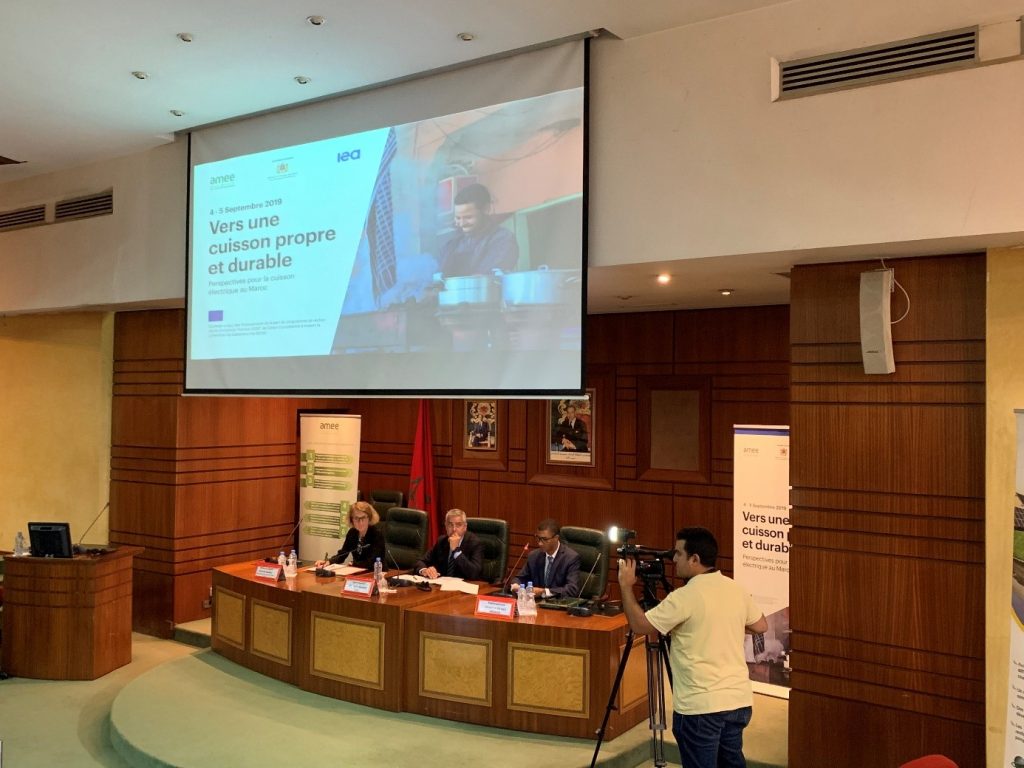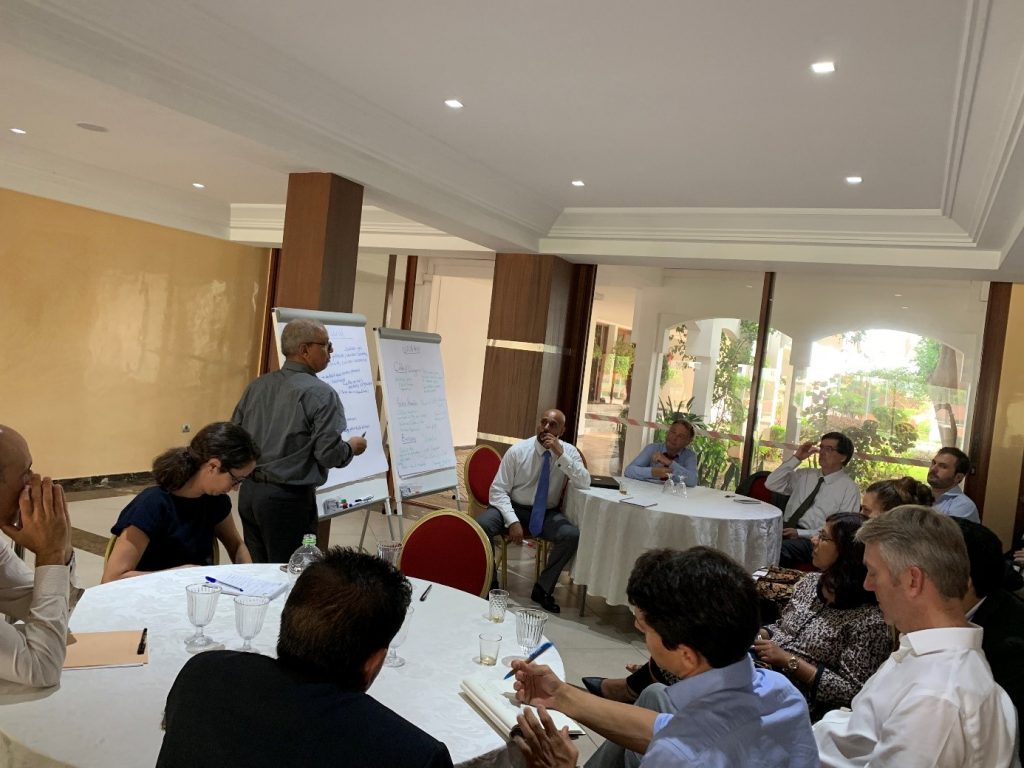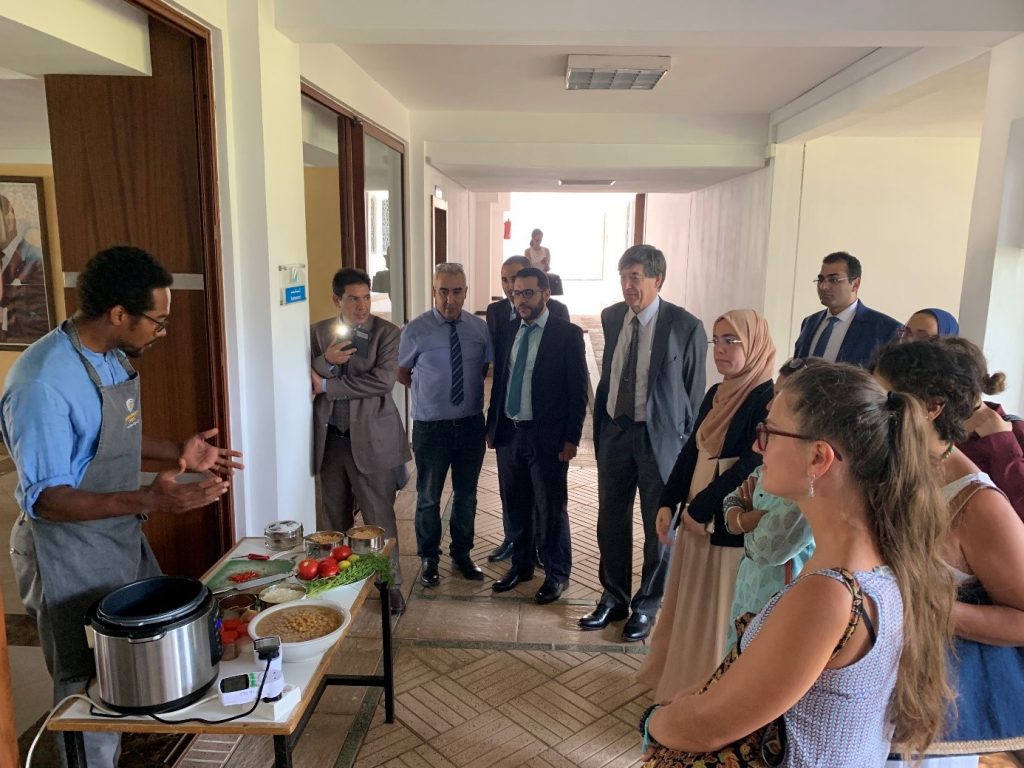- Date
- 16th September 2019
- Categories
- General
By Malcolm Bricknell.
The Moroccan Ministry of Energy, Mines and Sustainable Development, the Moroccan Agency for Energy Efficiency and the International Energy Agency co-hosted a workshop “Sustainable Clean Cooking – The outlook for electric cooking in Morocco” in Rabat on 4-5 September.

The workshop brought together national stakeholders and international experts to discuss the current trends in household cooking in Morocco, and identify pathways towards cleaner and sustainable solutions.
Morocco reports higher levels of access to clean cooking than most African countries, through widespread use of butane. However, those in rural areas who do not have access to the butane distribution system rely – either fully or partially – on collected firewood, exacerbating deforestation as well as being detrimental to their health and livelihoods. Furthermore, the heavily subsidised production and distribution of butane is a growing burden on the Kingdom’s budget and trade balance, as a variety of stakeholders take advantage of its low cost, which also dissuade energy efficiency improvements.
The challenges are therefore two-fold: what clean cooking solutions can be developed for the rural families still relying on firewood, and how can the dependence on butane be reduced, in order to engage in the progressive removal of the subsidies. The purpose of the workshop was to investigate the role that electric cooking has to play in meeting these two challenges.
In his opening remarks, Mr. Mohamed Ouhmed, Director of Renewable Energy and Energy Efficiency in the Ministry of Energy, Mines and Sustainable Development, affirmed that clean cooking is central to Morocco’s strategy to transition to a cleaner energy system, in which increased renewable energy generation will play a major part. This was echoed by, Mr Said Mouline, Director General of the Moroccan Agency for Energy Efficiency, who highlighted how the cost of solar photovoltaic (PV) systems has reached a tipping point. Electric cooking supported by PV systems could play a huge role in addressing the aforementioned challenges, while limiting the impact of increased electricity demand on the power system, and on consumer bills.

In order to illustrate these possibilities, international experts from the Modern Energy Cooking Services – a partnership of experts led by the UK and supported by the Energy Sector Management Assistance Program of the World Bank Group – and The Energy Resources Institute of India showcased a series of electric cooking solutions. In some cases, electric solutions have been demonstrated as being cheaper than more traditional cooking fuels, such as LPG, firewood or charcoal. Technologies discussed included induction plates and electric pressure cookers, connected to grid or part of off-grid systems.

Over the course of the two-day workshop, challenges were identified associated with the adaptability of these cooking devices to Moroccan cooking, as well as the social acceptability of the changes of habits, impact on consumer bills, and the particular challenges faced by low-income rural populations. Risks were also highlighted relating to the possible impact on the electricity generating system and distribution networks, and on local industry.
The workshop allowed to identify the next steps and key actors, for the short and medium term.
The recommended immediate next step would be an in-depth study in two phases. The first would help identify which technological solutions would be best suited to Moroccan cooking needs, by understanding current cooking methods and habits, and associated energy use and expenditure in both rural and urban contexts, of varying income levels.
The second phase would be aimed at understanding how the devices selected would work in the context of the country’s power system, how they would affect household consumption and consumer bills, and system peak demand.
Based on the study’s results, the deployment of pilot projects involving several dozens of families in various geographic and socio-economic contexts, with robust monitoring and evaluation, would enable further fine-tuning, and identification of the most appropriate business models and policy packages for full scale deployment.
The event was organised within the scope of an H2020 project funded by the European Union.